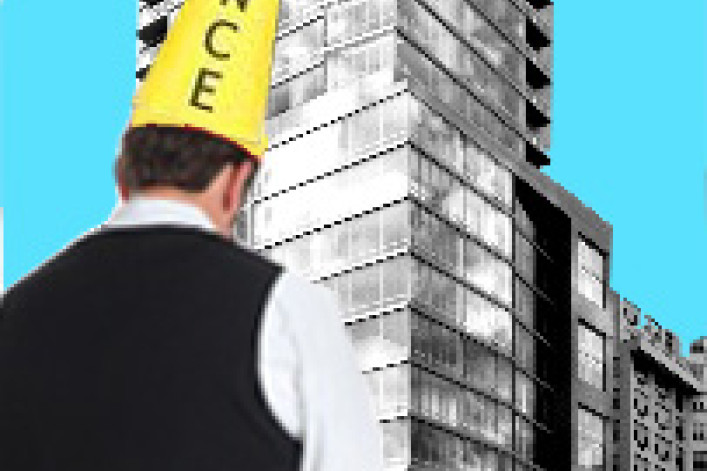The Board Room: Dealing with problem condo owners (Part 2)...Hoarders, renters and noisemakers

In Part 1 of Dealing With Problem Condo Owners, we looked at how condo boards can manage several types of objectionable conduct, including unauthorized renovations, transient visitors and certain types of home-based businesses. Now co-op and condo attorney Robert Braverman of Braverman & Associates explains what condo boards can do about hoarders and misbehaving renters and about disputes between neighbors over noise or odors.
1. Hoarders
Collyers’ Syndrome is more common among aging residents. It can be quite serious and dangerous both to the unit owner who may not have a safe path of ingress and egress from their unit, or otherwise living in an unhealthy or dangerous condition. It can also endanger the rest of the building’s occupants as a result of fire hazards, propagation of vermin, etc., which are created by the accumulation of what most would consider garbage and refuse in an apartment.
"Boards have a right, both pursuant to governing documents and pursuant to law, to obtain access to the apartment to investigate and document a Collyer’s situation," explains Braverman. "If such a condition is found to exist, a descriptive letter should be sent to the unit owner seeking the immediate removal of the offending items."
Unless there is a serious life-safety threat to others in the building, "do not engage in 'self-help' by having the staff or an outside contractor cure the nuisance condition,” cautions Braverman. “You’re opening up a huge possibility of liability. For example, the unit owner or his or her family member might come back and say that you threw away his original Picasso."
You may have no choice but to go to court to obtain an order permitting the condo association to abate the nuisance.
"However," says Braverman, "if your attorney has a good faith belief that the unit owner is not legally competent, he or she must advise the court and, in many instances, a Guardian Ad Litem will have to be appointed to assist and act on behalf of the unit owner. Many times, these guardians will step in and help resolve the condition."
2. Objectionable conduct by a renter of a condo unit
One of the benefits of owning a condo is the virtually unrestricted ability to rent your apartment to others. Renters, however, do not often treat the building or comport themselves in the same manner as owners. Yet standard form leases for a residential condo unit specify that renters must comply with the condominium’s governing documents and with all of its rules and regulations. Accordingly, violations of by-laws and house rules by renters can be treated just as if the condo owner was at fault.
Likewise, if an owner rents their apartment without giving the condominium a right of first refusal, most condominium by-laws allow the board to evict the tenant, as though they were the landlord under the lease.
3. Noise and smell disputes between owners
These are the hardest to resolve. Most will ultimately find their way onto your board’s agenda and, sometimes, to your attorney.
“Very often the advice I give is to make sure that the board has carried out its contractual and legal obligations,” says Braverman. “In the case of a child bouncing a ball above someone’s head, the board should request permission to inspect to make sure there is adequate carpet and urge the parents to be respectful neighbors.”
The next step is to ask the managing agent or super to listen to the purported noise and, if possible, record it. (Board members should refrain from doing this if possible, as they might be called later on as a witness.) If a nuisance condition is determined to exist, the managing agent should send a letter to the perpetrator demanding that it stop.
If the disturbance doesn’t rise to the level of a nuisance—or doesn’t appear to exist at all--take a step back and suggest that the neighbors work it out on their own.
“These types of disputes ultimately boil down to he-said, she-said issues and if the board can demonstrate good faith efforts to flush out the problem, it will be okay from a liability perspective,” says Braverman. “Of course, if there is objective demonstrable evidence of the existence of unreasonable odor, noise or other nuisance behavior or condition, you must take appropriate steps to remedy it.”
Robert Braverman, Esq., is the managing partner of Braverman & Associates, specializing in the representation of New York City co-op and condominium boards. Read more of his legal advice in The Board Room.
Related posts:
Dealing with problem condo owners (Part 1): Runaway renovations, condo "hotels," and home businesses


























